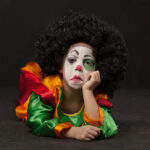To write better, read better

Last week on this page: if you want to write better, the path is the practice of writing. You don’t get better at writing by just thinking, talking or dreaming about writing. You get better by actually writing. The practice is the learning; the doing is the improving.
This week on this page: if you want to write better, learn to read better.
Seth Godin asks in The Practice: would you show up to a book club meeting without having read the book – and still have opinions about it? Would you show up for a PhD discussion without having read the source material? Would you trust a surgeon to operate on you who stopped reading anything about the latest procedures a long time ago?
You have to do the reading if at all you’re serious about your work, says Seth. By “the reading” he doesn’t just mean the books or journals that are on the list for your field. He means doing “the difficult work of learning to think with the best, to stay caught up, to understand. The reading exposes you to the state of the art. The reading helps you follow through a line of reasoning and agree, or even better, challenge it. The reading takes effort.”
Yes, it does take effort. But it is good effort, necessary effort, rewarding effort. It means keeping up with new developments, fresh thinking, unusual lines of inquiry. It means knowing what’s accepted wisdom, and what’s still up for grabs.
I ended up reading exactly 100 books in 2020, somewhat to my surprise. I have been exhorting readers to read more on this page for years now. My personal target used to be 50 books every year, or a book a week. Last year blew the lid off that goal.
Why did I read so many? Part of it was sheer escapism: I read many more novels simply to escape the confinements of the global pandemic. Unable to climb onto airplanes, I dived into books and visited far-off folks in faraway lands.
But I also read more in order to learn. I treat the shock of this pandemic as a wake-up call and a major learning opportunity. It turns out that there is so much more most of us don’t know about our world and about ourselves. The worldwide emergency taught me that there are many domains I don’t know enough about, such as zoonotic disease, virology, the history of fascism, and crisis psychology. I don’t need to become an expert in those fields, but I do need to know what the experts know.
Other domains began looming even larger as a result of the disease: digital acceleration, strategy and leadership through uncertainty, the morphing of work and workplaces. Now those are my areas of expertise, and I needed to keep up and keep ahead of the curve.
Hence: a whole lotta books. But also, a whole lotta journal articles, reportage, podcasts and conversations. A lot of meditative introspection. That’s what the work of “reading” looks like. It’s what you do in order to earn your skills. It’s not about being bookish or academic – far from it. It’s the work of staying relevant and staying ahead, in a very grounded and practical way.
Does our best work come directly from reading the work of others, though? Isn’t that just copying? No. Again, Seth puts it beautifully: “The point is not to copy, but in fact to avoid copying. Our best commercial work reminds people of what they’ve seen before. Creativity doesn’t repeat itself, but it rhymes.”
Not a book-reader? Not to worry! Your “reading” is to read people, read the room, read situations, read experiences, read the world. The point is to earn your skills.
Very few of us are pure originals, working in splendid isolation, deploying entirely personal skills and insights. The human is a social creature who understands and questions the work of others; who enhances and improves that work; who introduces variations that could end up becoming the core.
I have never met a great writer who wasn’t also a great reader. Great musicians know the work of other musicians. Great artists are students of art. Great leaders know the leadership of those who came before. Great teachers teach knowing the frame of what has been taught for centuries. The point is not to mimic; the point is to know enough to enhance, to improve, to upgrade the state of play. Our personal flourish exists within the symphony of creative human output that has preceded us.
So, how many books in 2021? 50 books has become my floor rather than my ceiling, so let’s see. I wish you, too, a year of doing the work and earning your skills.
(Sunday Nation, 14 February 2021)

Buy Sunny Bindra's new book
The X in CX
here »
Popular Posts
- How to listen, really listenNovember 16, 2025
- Here’s why you should become foolishNovember 30, 2025
- Is AI hiring your company into oblivion?November 23, 2025
- NY’s wake-up call to the old guardNovember 9, 2025
- Confessions of an explaining personDecember 7, 2025















